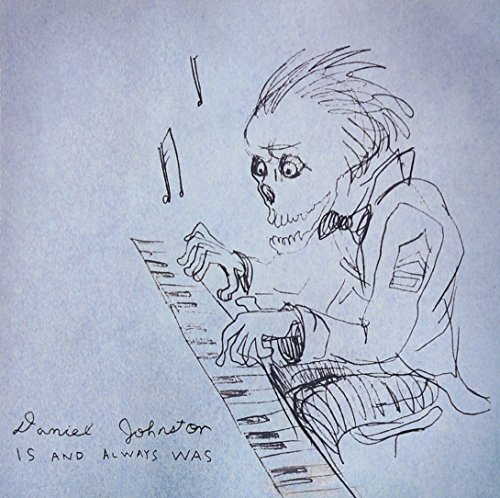
Daniel Johnston
Is And Always Was
Release Date: Oct 6, 2009
Genre(s): Indie, Rock
Record label: High Wire
Music Critic Score
How the Music Critic Score works
Album Review: Is And Always Was by Daniel Johnston
Very Good, Based on 7 Critics
Based on rating 8.2/10
Cult figure gets a guitar pop overhaul It’s been quite a journey for Daniel Johnston. The fragile, Beatles-obsessed songwriter began the ’80s releasing primitive cassettes of his direct, tuneful songs, leading to an erratic career as a cult recording (and visual) artist, punctuated by his famous struggles with manic depression and resulting in an unsparing documentary film. Now Johnston wraps up 2009 by working with an actual Beatles associate.
Based on rating 4/5
Gone are the days when Daniel Johnston would record his albums on a boombox in his brother's garage. Some might say the switch to full-band production strips his music of its idiosyncrasies, but on balance, there's more gained than lost here. Producer Jason Falkner provides a peppy, toe-tappin' backdrop for Johnston's unique songs, which lie somewhere between sunny, top-down FM rock and his beloved Beatles.
Based on rating 7.1/10
A lot of Daniel Johnston's most vital music was recorded alone, and in strange ways. On a weight bench, most famously, in his brother's garage, with a chord organ and a boombox microphone. This was back before his bipolar disorder really exploded on him, well and truly seized into his life. A lot of that music is hard to separate from the way you hear it-- the tape hiss and the vulnerable voice, the excitement of hearing into someone else's strange, pretty world, straight from boombox to boombox.
Based on rating 7/10
Daniel Johnston first made his reputation in the 1980s with ultra low-budget homemade recordings that sounded as rickety as his notoriously fragile psyche. As Johnston's cult following has grown with the years, those early efforts have continued to define his approach in the studio for good or ill, as attempts to craft more professional albums have found him collaborating with sympathetic musicians attempting to make sense of his idiosyncrasies (most notably Mark Linkous of Sparklehorse on 2003's Fear Yourself), or working with producers trying to create a hi-fi replication of Johnston's early cassettes (something Paul Leary of the Butthole Surfers did with surprising success on 1994's Fun). But with Is and Always Was, producer Jason Falkner has embraced a new approach; seemingly ignoring the artist's past work, Falkner has given Johnston's melodies a polished pop sound that reveals just how good the tunes can sound when given the right treatment.
Based on rating 7/10
Writing about Daniel Johnston tends to fall into two categories, especially since the 2005 release of Jeff Feuerzeig’s outstanding documentary, The Devil and Daniel Johnston. First, there’s the 'it’s great to see him doing so well' camp, who undoubtedly mean well, but can’t help coming off as slightly patronising in their approach to his actual work. Then there’s the 'it’s not as good as it used to be' camp, who miss the tape hiss and red-raw production values of Daniel’s earliest recordings, ignoring the fact that he always had Beatles-sized ambition burning brightly in his eyes.
Based on rating 6.0/10
The appeal of Daniel Johnston's music has always been in its childlike exuberance. When he sings about Jesus, it's with the zeal of a missionary, and when he sings about love, it's with the intensity of a junior high infatuation. It's no coincidence, then, that his most well-received albums are those with the most bare-bones approach to production, like Hi, How Are You? and 1990.
Based on rating 4/10
Daniel Johnston occupies an interesting place in popular culture. He became widely known from a t-shirt Kurt Cobain wore a lot in public in 1992, but had been plying his trade in the American indie music scene for about a decade by then. Releasing his mainly home recorded tapes (often with personalised, individually drawn artwork for each copy) into a listening public that was, by turns, enthralled (for the naive, songwriterly talent, the sincerity and awkward, insecure charm) or put off (by the heart-on-sleeveness, by the unabashed sentimentality), Johnston had attained a level of minor fame even before Cobain’s endorsement.

